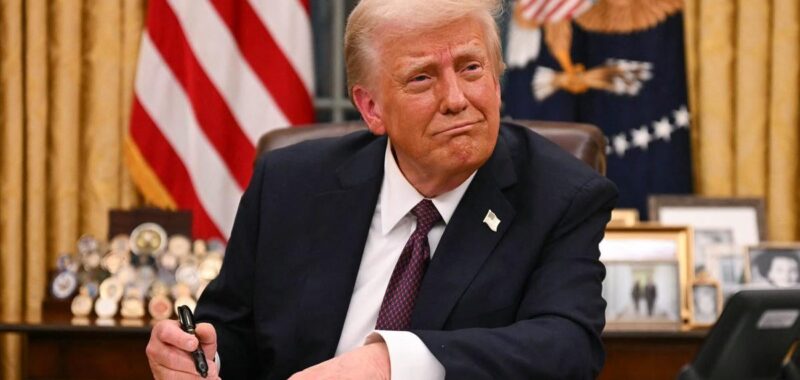Washington — A federal judge in Seattle temporarily blocked President Trump’s new executive order that seeks to eliminate birthright citizenship.
At a hearing Thursday, U.S. District Judge John C. Coughenour called Mr. Trump’s order “blatantly unconstitutional” and said he will grant the request for a temporary restraining order sought by four Democrat-led states that challenged it: Washington, Arizona, Illinois and Oregon.
The judge’s order will remain in place while legal proceedings continue and is an early blow to the unilateral efforts undertaken by Mr. Trump to crack down on immigration, which he promised to do on the campaign trail and began to pursue almost immediately after he was sworn in for a second term Monday.
A Justice Department spokesperson said the department “will vigorously defend President Trump’s [executive order], which correctly interprets the 14th Amendment of the U.S. Constitution. We look forward to presenting a full merits argument to the court and to the American people, who are desperate to see our nation’s laws enforced.”
The president’s order targeting birthright citizenship was among a wave of executive actions he signed just after his inauguration. The order directs federal agencies to stop issuing citizenship documents such as passports to children born on U.S. soil to parents in the country illegally or under temporary visas.
Mr. Trump’s move was swiftly challenged by the four states and a separate group of 18 others, as well as advocacy groups.
In a four-page order issued after the hearing, Coughenour wrote that the president’s executive action harms the states by forcing their agencies to “lose federal funding and incur substantial costs to provide essential and legally required medical care and social services to resident children” subject to his measure. He found the states’ residents are also harmed by “depriving them of their constitutional right to citizenship and all the associated rights and benefits.”
Citing his four decades on the bench, Coughenour said he “can’t remember” a case that presented a question “as clear as this.”
Coughenour was the first judge to convene a hearing on the issue, during which he considered the request from the four states to temporarily block implementation of the order.
The judge, who was appointed to the federal bench by President Ronald Reagan in 1991, said he would have a difficult time imagining members of the bar finding Mr. Trump’s order to be constitutional.
The four states argued Mr. Trump’s order seeking to end birthright citizenship violates the 14th Amendment, which states that “All persons born or naturalized in the United States, and subject to the jurisdiction thereof, are citizens of the United States and of the state wherein they reside.”
“Through the order, babies being born today aren’t considered American citizens anymore,” Lane Polozola, a lawyer representing Washington state, argued during the hearing, adding that hundreds of thousands of children across the country will be impacted by Mr. Trump’s action.
Polozola said the removal of birthright citizenship is “off limits.”
But Brett Shumate, a Justice Department lawyer who defended the order, said it would be “wildly inappropriate and premature” to grant a temporary restraining order at this moment that blocks implementation of the measure. He predicted that the challenge to Mr. Trump’s measure will eventually wind up before the Supreme Court, which has a 6-3 conservative majority.

